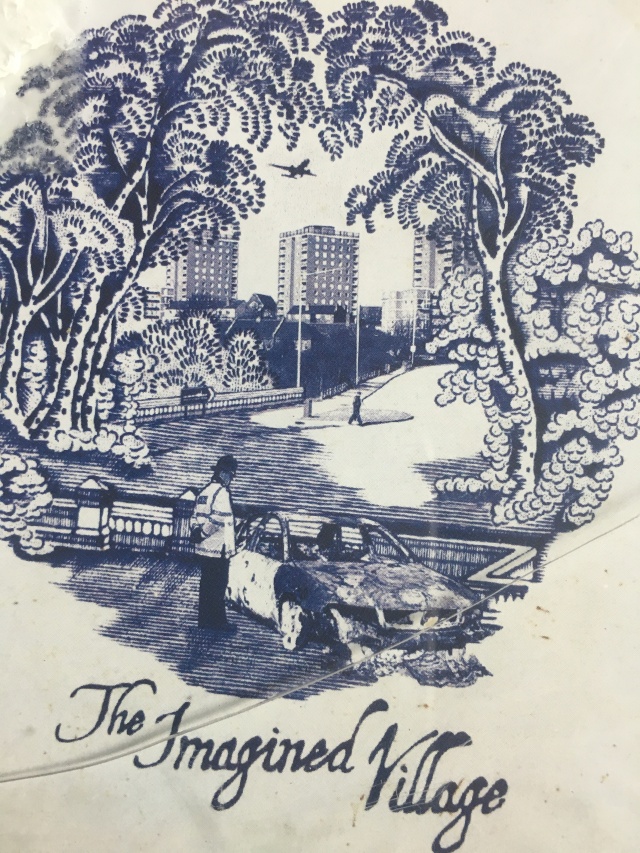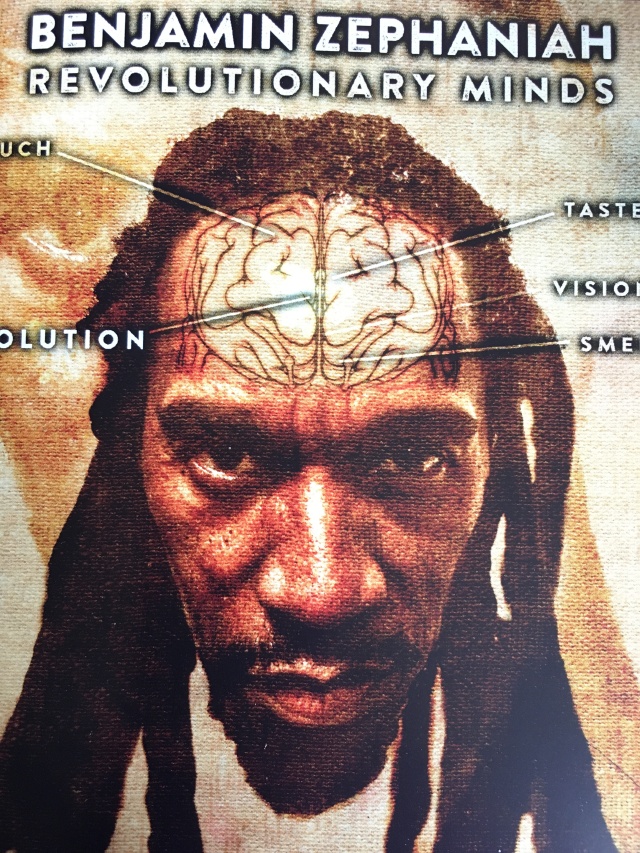In the first of my explorations of poetry used in modern music, I will shine the light in the direction of top UK poet Benjamin Zephaniah.
Benjamin Zephaniah appeared on the first Imagined Village album, where he performed a retelling of the old English poem Tam Lin in words that would speak to our current times, picking up the hot potato of asylum and immigration.

This was the first of Imagined Village’s three albums, and it seemed deliberate that for this first album they employed well-known names such as Billy Bragg and Paul Weller – great musicians and a little controversial.
Benjamin Zephaniah has never been one to shy away from controversy, but in the nicest and most morally upstanding of ways – namely his rejection of his OBE. “OBE” means “Order of the British Empire”. Zephaniah said, ‘Me? I thought, OBE me? Up yours, I thought. I get angry when I hear that word “empire”; it reminds me of slavery, it reminds me of thousands of years of brutality…’
Zephaniah was born in Birmingham – a diverse city in the south of England – and gained a keen audience among Afro-Caribbean and Asian people. However, he wished to reach a wider audience and so set off to London in search of riches, like so many characters in folk music and British history. Well, Zephaniah certainly did reach a wider audience after first publishing “Pen Rhythm” in 1980 and releasing an album “Rasta” in 1982. Nelson Mandela requested Zephaniah open The Two Nations Concert at The Royal Albert Hall in 1996. Zephaniah sat in on the Bloody Sunday inquiry, he wrote more poetry for adults, children and then four novels.
In 2015, Zephaniah called for Welsh and Cornish to be taught in UK schools, stating that these languages are a part of UK culture. An author, social commentator, poet, actor and playwright, Zephaniah has come a long way in 60 years and has played a crucial role in UK life. He has also impacted individual lives in his voluntary role on the streets of inner cities, talking to gang members, encouraging them to leave their criminal lives behind for a better life as he himself had done. As a dyslexic child, Zephaniah had left school at 13 and fell into crime. After leaving prison at the age of 20, Zephaniah taught himself to read and write, and to want more out of life – possibly his greatest achievement.
I love Zephaniah’s role on Imagined Village’s first album. As a fan of both Zephaniah and folk music, I was a happy chappy. Imagined Village set out to marry traditional British music with the cultural diversity that we are blessed with in the UK today. Band members include Simon Emmerson of the Afro-Celt Sound System, Johnny Kalsi of The Dhol Foundation and the Afro-Celts, renowned sitar player Sheema Mukherjee and Andy Gangadeen of The Bays, along with folk royalty Martin and Eliza Carthy and Chris Wood. Zephaniah was a perfect fit for Imagined Village and Tam Lyn Re-Told.
Benjamin Zephaniah’s new album “Revolutionary Minds” is a banquet of reggae, dub and politics. As an English teacher to Chinese students, I was happy and taken aback to hear Mandarin Chinese spoken as an interlude before the fourth track.

Don’t be fooled by the laid back reggae beats and a track called “Hot Like Jamaica” where Zephaniah goes on a bit about a woman who is, um, hot like Jamaica. Don’t be lulled into any false sense of security because this album is full of POLITICS. Aborigines, LGBT, Stephen Lawrence and Palestine all get more than a mention, along with that longterm theme of Zephaniah’s, civil disobedience. Zephaniah once said that he tried to break one law every day – probably by lighting up the holy herb – but now he seems more concerned about people following their government blind; sheeple. It’s worth a listen or six.
